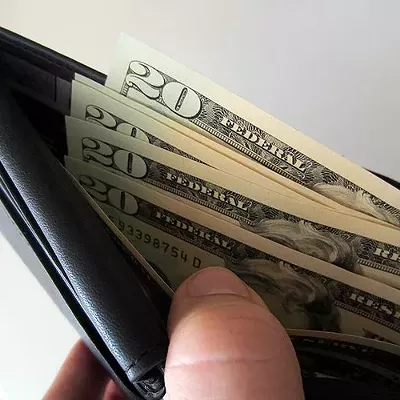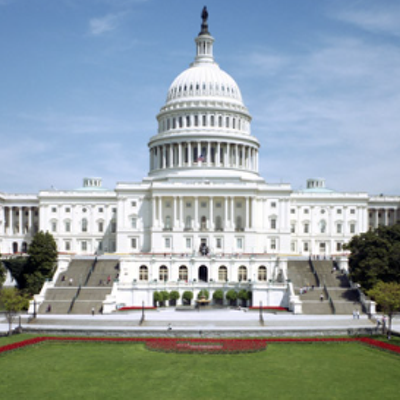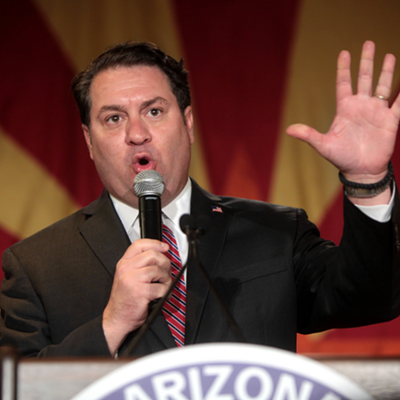WHAT A DEAL!
The Tucson City Council was set to discuss a proposed downtown development deal at its afternoon study session this week.
That discussion came after our deadline, but you can find details at blog.tucsonweekly.com. Meanwhile, we do have a few takeaways after looking over a draft of the proposal between the city and downtown developers Scott Stiteler and Don Martin that was released last week.
Stiteler and Martin are proposing to spend $5 million fixing up property that they own around the Rialto Theatre. They'd also invest another $4.5 million on an affordable-housing project in the Warehouse District on Toole Avenue west of the Sixth Avenue underpass. Finally, over a five-year period, they'd contribute $500,000 to three downtown causes.
Most of that half-million would go to the city's downtown building-façade program or to Skrappy's youth club on Toole Avenue. But $100,000 would be donated to a downtown art group—or groups—selected by Stiteler and Martin.
In exchange for the $10 million that they're investing, the city would give Stiteler and Martin city-owned land worth $4 million. This could include the former Volvo dealership on Broadway Boulevard east of downtown, the Congress Street frontage of the Ronstadt Transit Center and some other downtown land. As of our deadline, that part of the deal was still being negotiated.
The agreement appears to be very generous to Martin and Stiteler. For example, in exchange for their donation of $500,000, they'll be eligible for $600,000 in city land. Given the way the stock market is performing these days, a 20 percent rate of return is pretty sweet.
Stiteler and Martin are also promising to invest $1 million in the city-owned Rialto Theatre, but it's not exactly clear what they're offering to the Rialto, although there is a mention in the agreement about "rent relief for the Rialto Foundation." That's a reference to the fact that the theater's nonprofit operators—headed up by former Tucson Weekly owner Doug Biggers—need some of the property owned by Stiteler and Martin to continue running the only part of Rio Nuevo that has actually succeeded in bringing people downtown on a regular basis.
Speaking of Martin and Stiteler: The two developers were among those who threw a fundraiser last week for Ward 6 Councilwoman Nina Trasoff, who has been championing their deal.
Attending this fundraiser five days before you're going to vote on a development agreement has a lousy smell to it, Nina.
ELSEWHERE IN THE DOWNTOWN ARENA
The Downtown Tucson Partnership, a nonprofit funded through both public and private dollars, is having a hard time these days, according to a revealing report from DTP CEO Glenn Lyons.
Pima County has bailed out on the $200,000 it was going to give the DTP. Hotel Arizona didn't cough up $34,000 that it was going to pitch in. The city of Tucson cut back $38,000.
That leaves the DTP struggling to raise "at least $50,000 in additional working capital to get through to the end of the summer."
But help is on the way from the city of Tucson, even though it is reducing its subsidy of the organization from $364,000 to $280,000 in the upcoming fiscal year.
The city, which is already paying the salary of downtown planner Teresa Bommarito for the DTP, is ready to give the partnership two more staffers: Jaret Barr and Fran LaSala.
Barr was former City Manager Mike Hein's right-hand man and is probably the only person who understands how the proposed downtown hotel deal works. LaSala was also close to Hein and took over the planning for the downtown streetcar some time ago.
The salaries of Barr and LaSala "will be paid for by the city of Tucson, but they will be assigned to the partnership, identify themselves as partnership staff, and report to our CEO," according to Lyons' report.
"This is part of a reorganization of the city of Tucson's downtown revitalization efforts," the report continues. "(City Manager Mike Letcher) is giving the partnership the primary role in downtown master planning, development strategies and agreements, interaction with the public, etc., and he is providing the staff for us to do this work."
This is quite the outsourcing effort. Of course, it does raise questions about precisely whom our downtown planners are accountable to ...
THE BOTTOM LINE
The Tucson City Council has come up with a budget plan that, on the whole, really isn't that bad, given the problem that they're facing.
They've jettisoned the most unpopular proposal: a 2 percent tax on rent payments. This is a fairly common tax elsewhere in the state, but it's also one that gets people riled up, especially when they're feeling financially pinched.
The Arizona Multihousing Association was able to pack a budget hearing with 600 people opposed to the rent tax, which showed the council that approving it would be a dumb move, politically speaking.
Instead, they've decided to increase utility taxes, which will be passed on to city residents in the form of higher utility bills. Council members make the point that the tax will be spread more broadly across the community, hitting all utility-using residents instead of just driving up costs for renters.
Some commentators—we're looking your way, Tom Danehy—are complaining that the utility tax is outrageous. And we know we're supposed to get all worked up at any sniff of a tax increase.
But when you look at the problems the city is facing, the council is making the best of a bad situation.
The city is looking at a drop of $68 million in what it was anticipating to bring in during fiscal year 2009, thanks to a drop in sales-tax revenues and reduced revenues from the state.
The city has been cutting in response to the money trouble. Management has trimmed 400 staff positions (some of which were unfilled) and is asking all city employees outside of public safety to take a week off without pay. They've stopped repaving residential streets and cut back on parks-and-recreation programs. (Fees for those programs are likely to be going up, too). Outside agencies are getting less money from the city.
Water bills are going up, mostly because Tucson Water needs to pay its own way without a city subsidy, and the cost of water delivery is increasing. (An increase in city taxes on the water department will have a negligible effect.)
And, of course, the council is also hiking the trash fee 50 cents a month, now that they've realized that their various campaigns in opposition to the fee were as stupid as we always said they were.
The worst is not yet over. They've used $29 million in one-time revenue and spending adjustments to balance the budget, which means they've got a major hole to fill when it comes time to work out next year's budget. Something tells us a rebounding economy is not likely to solve that problem.
Given all of that, a few tax increases don't strike us as unreasonable.
Oh, and to answer Danehy's question about how much the tanning-salon tax is expected to bring in: $15,000 a year.







